On the afternoon of July 25, 2025, the 7th “Criminal Defense Hundred People Talk” event hosted by the Second Criminal Division was successfully held at King&Capital Law Firm. The event was hosted by Zhang Pengpeng, Director of Business Management, and featured presentations by Tan Wenchang, founder of King&Capital Law Firm; Sun Xiaoyang, senior partner at Beijing Dacheng Law Offices; Xu Lanting, honorary director of Beijing Jun Yong Law Firm; Xia Jun, senior partner at King&Capital Law Firm; and Meng Fen, partner at King&Capital Law Firm.
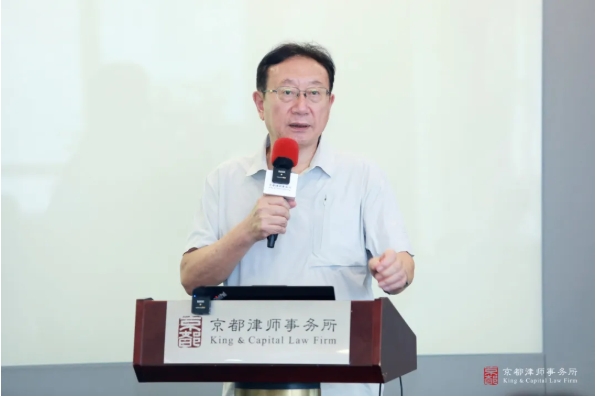
Attorney Tian Wenchang first shared insights based on the content of the Shanghai conference, which was co-hosted by the Shanghai Higher People's Court and the Shanghai Bar Association, focusing on four topics including comprehensive criminal defense coverage. Regarding comprehensive criminal defense coverage, Attorney Tian Wenchang emphasized that comprehensive coverage should not only encompass the quantity and types of cases but also the entire litigation process, including the investigation, prosecution review, and trial stages. Achieving this goal is currently challenging, so it can be implemented in stages. Additionally, the current functions and capabilities of on-duty lawyers are limited, and the number and quality of legal aid lawyers do not meet the demand. He suggested adopting the foreign model of government procurement of legal services to establish specialized legal aid law firms, which could also serve as a training platform for young lawyers. In the defense of cases involving disputes over guilt or innocence, he pointed out that substantive issues are highly contentious in China's criminal defense, far exceeding those in other countries, due to abstract and vague legislative language and insufficient judicial standards. Using the crime of issuing false VAT invoices as an example, he criticized the view that it is a crime of conduct, noting that similar issues increase the difficulty of defense but also increase the scope for lawyers to defend their clients. Regarding cases involving guilty pleas and sentencing agreements, he argued that the root cause of the prosecution's dominant position lies in the lack of judicial impartiality, calling for the strengthening of the central role of the judiciary. He also pointed out that the prosecution's one-sided pursuit of conviction rates violates the principles of litigation, suggesting that cases should be reasonably screened and that the evidence standards should follow a tiered approach from investigation, prosecution, to trial. In addition, he also mentioned the issue of the weak role of lawyers in commutation and parole, advocating that lawyers should participate in the process to help prisoners obtain their legitimate rights and interests, which he believes is an extension of the right to defense. Finally, he emphasized that in cases of official misconduct, the difficulty of defense in terms of procedure requires lawyers to do their best, while disputes in terms of substance offer great opportunities. Lawyers should have a solid theoretical foundation and promote the progress of the rule of law by analyzing individual cases.
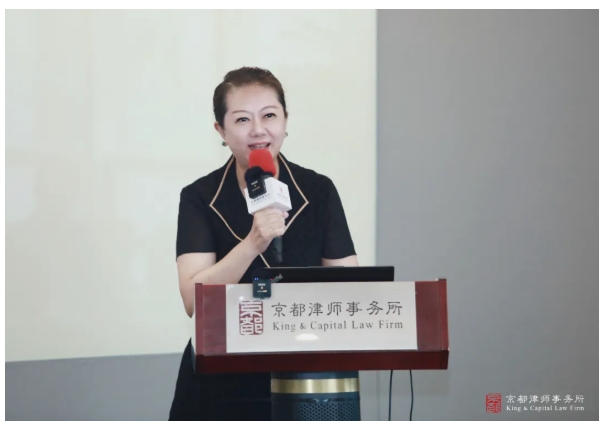
Attorney Sun Xiaoyang used the Li Tie case from the series of anti-corruption cases in Chinese football as a starting point to share insights on the identification of subjects in official misconduct cases and the grasp of defense perspectives. She pointed out that whether the subject of official misconduct is a state official directly relates to the distinction between crime and non-crime, and between one crime and another. During defense, it is necessary to thoroughly understand the industry background and historical changes.
In the Li Tie case, the indictment charged five crimes, including bribery. While the main points of contention between the prosecution and defense focused on factual issues, the identification of the subject was one of the key points of contention. The first-instance and second-instance judgments determined that Li Tie had the status of a state official, reasoning that during his tenure as head coach of the national football team and the national selection team, he was appointed by the Chinese Football Association and approved by the General Administration of Sport of China, and engaged in official duties such as selecting players and leading the team in competitions.
However, defense attorney Sun Xiaoyang opposed this determination. She argued that this determination first conflicts with the overall plan for the reform and development of Chinese football and the significant reform achievements already attained, namely the separation of management and operations: In 2015, the plan explicitly stipulated that the Chinese Football Association would be separated from the General Administration of Sport of China to achieve the separation of management and operations. In 2016, the Football Administration Center was dissolved, and the General Administration of Sport of China only provides business supervision and guidance, with player selection and other matters clearly falling under the jurisdiction of the Chinese Football Association; Second, this determination does not comply with the provisions of the Supervision Law, as the CFA is not an organization authorized by laws and regulations or entrusted by state organs to manage public affairs, and the relevant provisions of the Sports Law do not confer public management functions upon it; Third, this determination conflicts with the charters of FIFA and the Asian Football Confederation (AFC), which require member associations to independently manage their affairs without interference from third parties. If the head coach of the national football team is deemed to be “appointed by a state organ,” it would lead to a paradox regarding the status of foreign coaches, harm China's international football image, and violate the CFA's relevant commitments.
Attorney Sun Xiaoyang believes that classifying the head coach of the national football team as a state employee involves multiple issues, including protecting the achievements of football reform, strictly adhering to legal provisions, and upholding the charters of FIFA and the AFC. She also believes that lawyers' research on the core issues of this case holds significant industry and historical value.
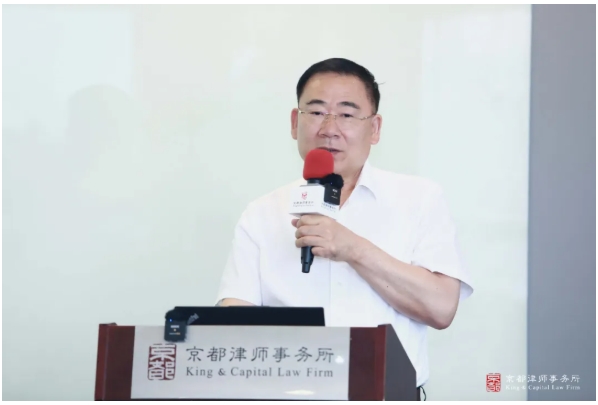
Xu Lanting, a lawyer, discussed several complex issues related to bribery crimes, drawing on her years of case handling experience to outline 10 core issues. Regarding “abusing one's official position,” he argued that this should be interpreted broadly, including supervising, overseeing, handling, or even tacitly approving, and should be distinguished from mere work-related conveniences. Regarding “seeking benefits,” promises, implementation, or realization are all valid, regardless of whether the benefits are lawful. However, bribery must involve seeking improper benefits, including violating regulations or violating fair principles to gain a competitive advantage. For bribery involving cooperative investments, if the actual capital contribution or participation in management is involved, it does not constitute a crime. Family relationships do not affect the determination of bribery, as long as the characteristics of a quid pro quo transaction are present. However, in cases involving spouses or cohabiting father-son relationships, where assets are commingled, criminal liability is generally not established. He also mentioned that bribery does not require the recipient to personally receive the money; receiving it through a third party still constitutes bribery. Whether receiving interest on a loan constitutes bribery depends on whether the other party genuinely needed the funds. If the other party did not lack funds but was forced to accept money at high interest rates, it may constitute a crime. Whether returning the money affects the determination of guilt depends on the reason and timing of the return; returning money to evade punishment still constitutes bribery. The distinction between reciprocity and a quid pro quo transaction depends on whether the amount meets local standards and whether there are specific requests involved; exceeding 30,000 yuan and being given by a management target may constitute a crime. Additionally, even if the proceeds of the crime are not found, a conviction is still possible if the amount can be determined. Attorney Xu Lanting pointed out that the distinction between bribery, complicity in bribery, corporate bribery, individual bribery, and embezzlement must also be considered in conjunction with specific circumstances. For example, embezzlement harms the interests of the organization, while bribery involves an individual receiving benefits. Finally, he shared defense strategies, including mastering substantive law, procedural law, and evidence law; effectively utilizing expert testimony and media supervision; analyzing the essence behind the phenomena; prioritizing not-guilty defenses before considering sentencing defenses; clearly articulating defense requests; aligning with judicial reform trends; and upholding advanced judicial principles. He emphasized that effective defense does not solely refer to securing an acquittal but also includes seeking lighter or reduced penalties.
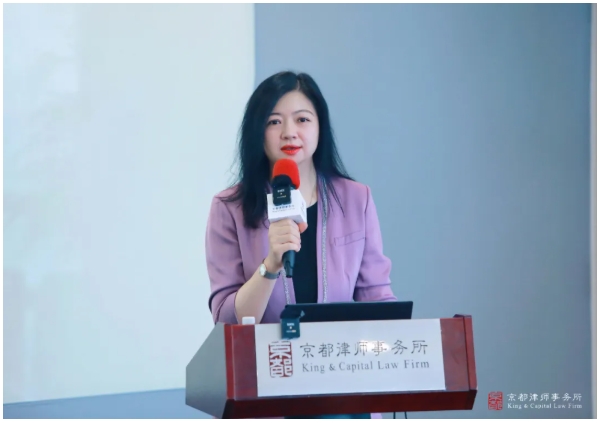
Attorney Xia Jun focused on three key distinctions that are often confused in the defense of official misconduct cases, sharing defense points and strategies through multiple case examples. The first is the distinction between bribery, brokerage bribery, and influence peddling bribery. Attorney Xia Jun believes these three can be distinguished from four dimensions: In terms of the subject, the subjects of bribery and brokerage of bribery are state officials, while the subjects of influence peddling are close relatives, other individuals closely associated with the state official, former state officials or their close relatives, and other individuals closely associated with them; In terms of official position, the perpetrator of bribery “uses their own official position,” the perpetrator of brokerage bribery “uses their own authority or the convenient conditions formed by their position” to carry out the act through the official duties of others, while the perpetrator of influence-based bribery “carries out the act through the official duties of others,” with the influence of closely related individuals being non-power-based influence; In terms of seeking benefits, when accepting bribes, the recipient must engage in acts to secure benefits for others. When demanding bribes, it is not necessary to secure benefits for others as a prerequisite. Both brokerage bribery and influence-based bribery require the securing of improper benefits. Additionally, there are differences in terms of statutory penalties. The second issue is the distinction between bribery and extortion, which is a common issue in many practical cases and deserves attention. Attorney Xia Jun believes that the key to distinguishing between the two lies in: Focusing on initiative, i.e., whether the recipient of the bribe first proposed the bribery request. However, initiative is only one of the conditions for extortion to be established. The focus should also be on whether the recipient of the bribe exerted mental pressure on the bribe giver, i.e., whether there was coercive behavior. The perpetrator uses their authority as a condition to exert mental pressure on others, forcing them to deliver property. In practice, when determining the roles of the recipient and the giver of the bribe, the principle of benefiting the defendant in cases of doubt must be strictly adhered to. The third issue concerns the distinction between the crime of bribery and the crime of corporate bribery. When distinguishing between the two, three key aspects should be considered: first, the legal status of the entity, focusing on whether the organization involved meets the legal requirements for corporate criminal liability; second, the intent behind the bribery, focusing on whether the involved behavior reflects the will of the entity or the individual; Finally, the beneficiary of the benefits obtained through bribery, whether it belongs to the entity or the individual. These three key distinctions are often sources of controversy and confusion in official misconduct cases. Accurately distinguishing between them is a key focus and a powerful defense strategy for lawyers. Attorney Xia Jun emphasized that lawyers must continuously reflect and summarize their experiences during case handling, as this is an essential quality and core competitiveness for defense attorneys!
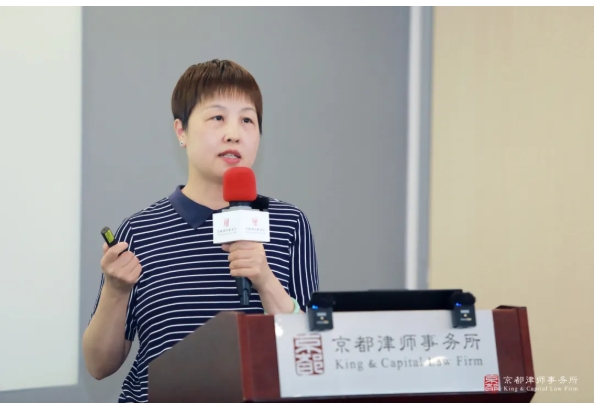
Attorney Meng Fen discussed the “revolving door” between government and business and the crime of bribery through the use of influence. The “revolving door” refers narrowly to public officials who, after leaving their positions, take up违规 positions in companies and receive high salaries. Such behavior has gradually been subject to criminal regulation under the high-pressure anti-corruption campaign and often involves the crimes of bribery or bribery through the use of influence. Today's discussion focuses primarily on the crime of bribery through the use of influence. Since the crime of bribery through the abuse of influence was added to the Criminal Law Amendment (VII) in 2009, it was relatively rare in cases. However, under the current high-pressure anti-corruption environment, this crime has become a “high-frequency offense” among official misconduct crimes: According to the 2024 Work Report of the Supreme People's Procuratorate, this offense accounted for 17.3% of all official misconduct cases handled by procuratorial organs nationwide, an increase of 4.6 percentage points year-on-year. The crime of bribery through the use of influence has two forms of description. Today, we will primarily discuss the second form: where a former state official uses the influence derived from their former position to, through the official duties of another state official, secure improper benefits for a requestor and receive property in return. She analyzed four typical patterns of the “revolving door” between government and business: immediate power conversion, option trading, information services, and networking monetization. The latter two are more likely to be classified as bribery through the abuse of influence. Given the current trend of expanding the application of this offense in judicial practice, with the boundaries between crime and non-crime becoming increasingly blurred, she believes it is more important to clarify the legal interests protected by the offense of bribery through the abuse of influence. Regarding the protected legal interest of this crime, she believes that its essence is still an indirect exchange of power for money, and the protected legal interest remains the integrity and fairness of public official conduct, rather than the “non-corruptibility of official influence.” Therefore, to establish the crime, there must still be actual power intervention and the pursuit of improper benefits; it cannot be convicted solely because a former official received money after making a request to a public official. Attorney Meng Fen cited a case to illustrate that during defense, it is necessary to distinguish whether the high-paying compensation received by a former public official is compensation for power or for professional skills. For example, if a former financial official provides professional debt restructuring services to a company, although they may have made inquiries to officials within the financial system, since the officials did not genuinely take their inquiries seriously and did not secure improper benefits for them or the requesters, this indicates that their former authority and influence did not actually impact current public officials. Additionally, the former financial official's annual salary was comparable to that of senior executives of equal status within the company, so they should not be convicted of this crime. She emphasized that in practice, the boundaries of this crime are easily expanded, and it is necessary to carefully review the specific matters requested, the extent of power intervention, whether improper benefits were sought, and the reasonableness of compensation to avoid classifying the provision of professional services after a normal career transition as a crime. In practice, the boundaries between crime and non-crime should be strictly distinguished to prevent the improper expansion of the application of this crime.
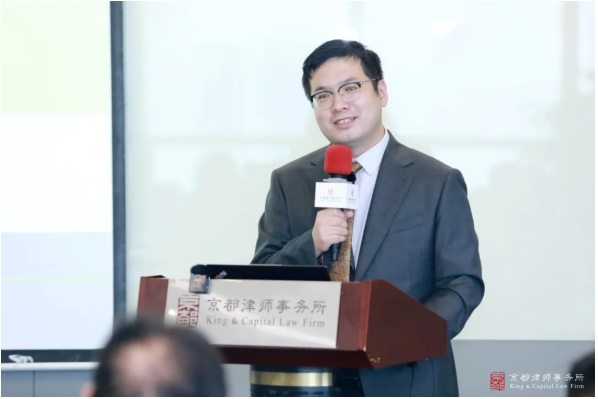
Host Zhang Pengpeng connected the sharing of all the guests, providing a brief summary and transition after each guest's speech, guiding the audience to focus on key issues in the defense of official misconduct cases, such as the identification of the subject, difficult issues in bribery crimes, and disputes over boundaries, ensuring the smooth progress and successful conclusion of the seminar.
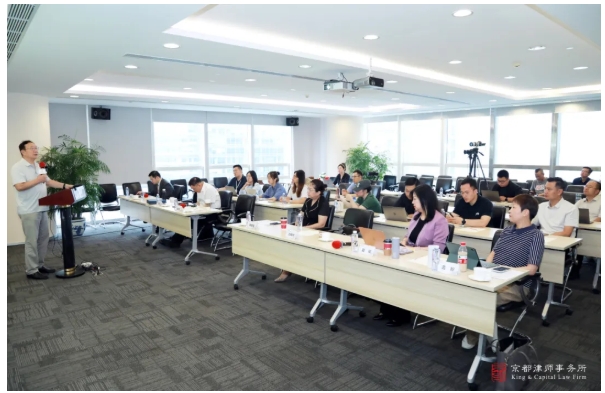
The seventh session of the “Criminal Defense Hundred-Person Talk” series focused on in-depth discussions of the challenges and pain points in defending cases involving official misconduct. The guests shared practical experiences and defense strategies from multiple perspectives, including comprehensive criminal defense coverage, identification of the subject in official duty-related crimes, complex issues in bribery crimes, important distinctions in bribery crimes, and the “revolving door” between government and business and the crime of accepting bribes through the use of influence. This provided criminal defense lawyers with broader perspectives on effective defense strategies, and the symposium concluded successfully in a lively exchange of ideas.





